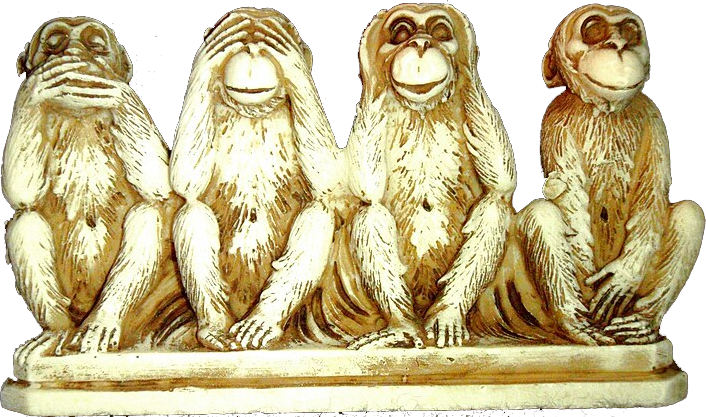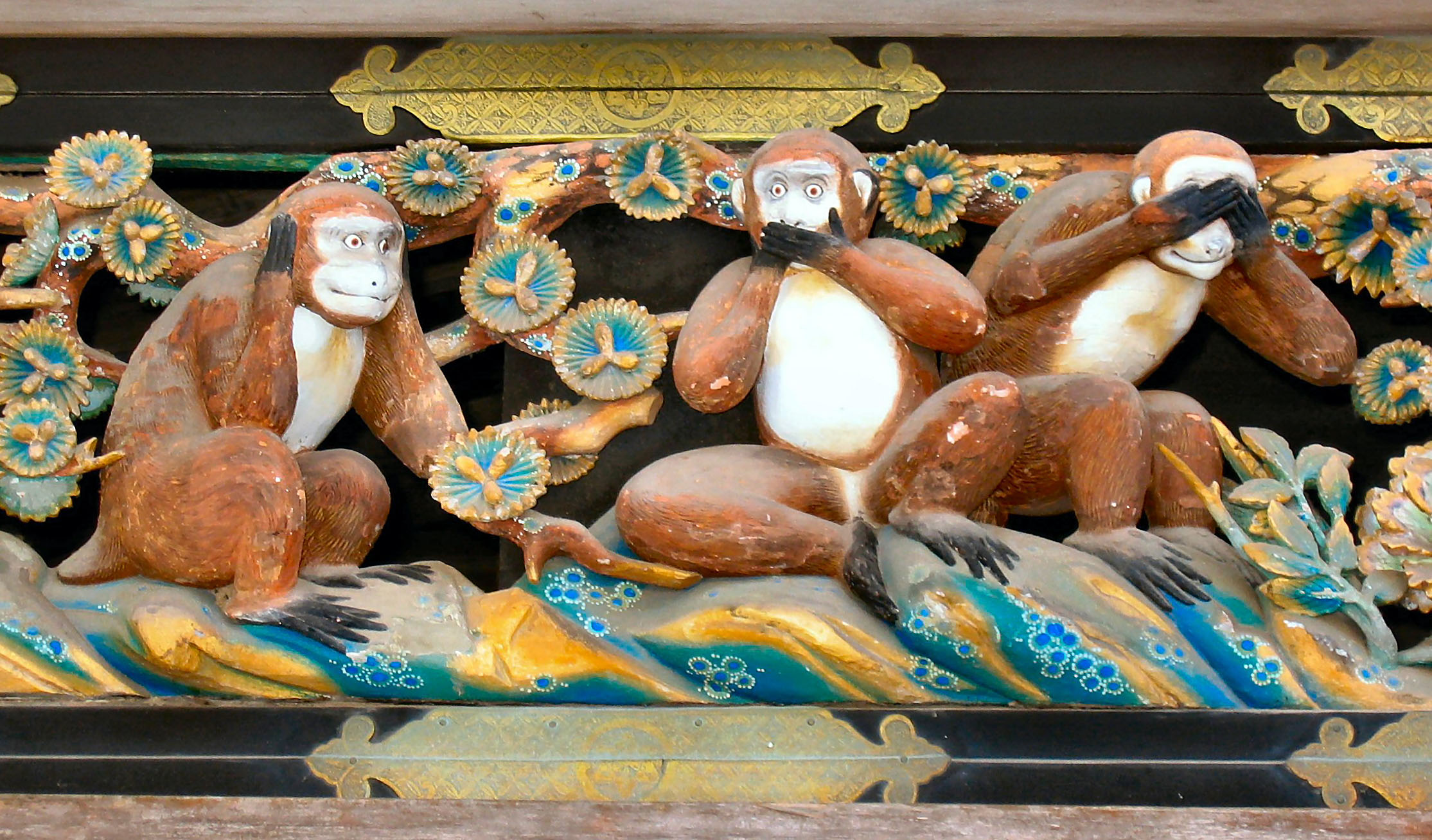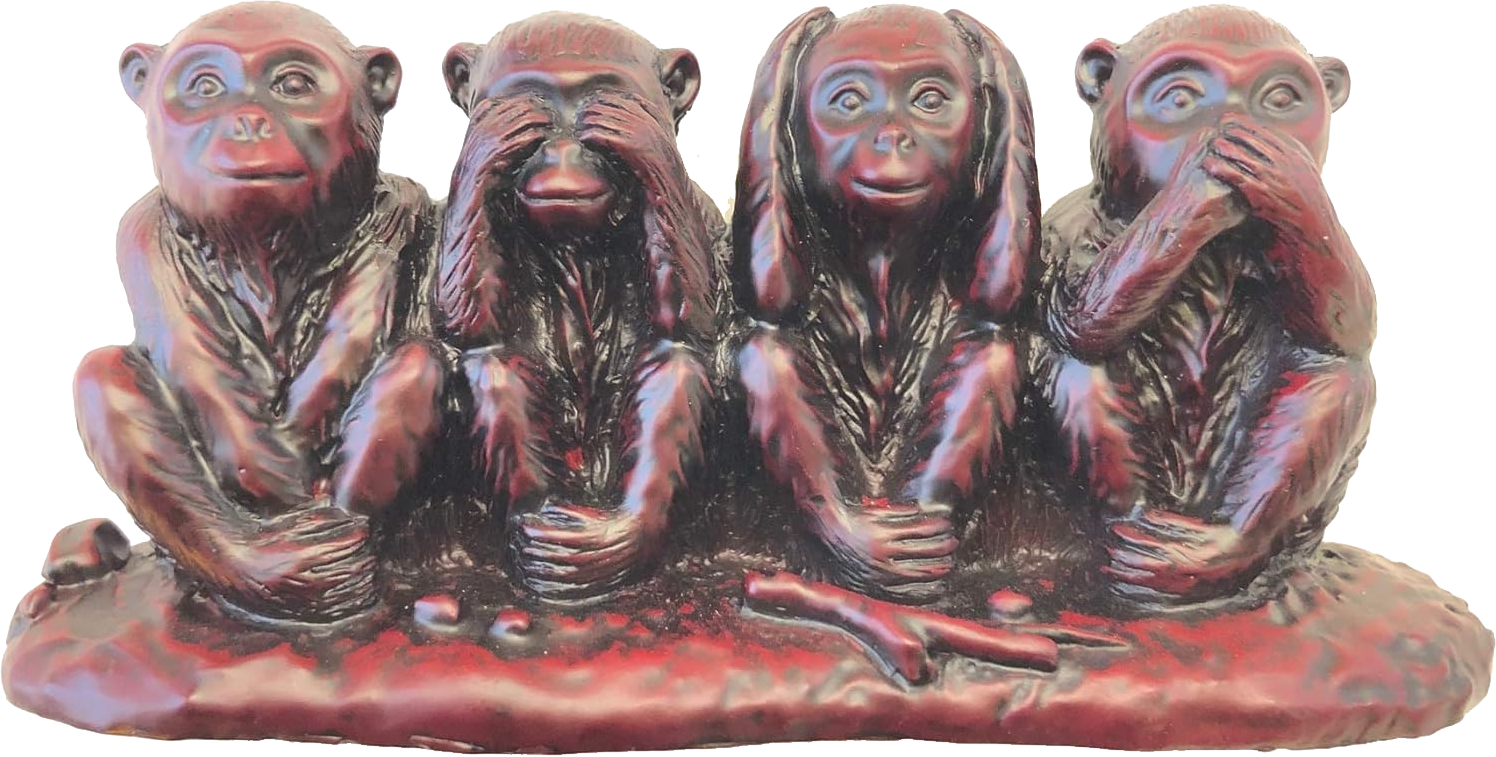



The origins of the four monkeys are attributed to the Chinese philosopher 'Kong Fuzi' (551-479 BC), who is best known in Western world by his Latin name Confucius. In the book 'Analects of Confucius' (also known as 'Sayings of Confucius') which has been compiled after his death somewhere between 206 BC and 220 AD, it is cited:
There is also another potential source, the book Xunzi (from the 3rd century BC) by the philosopher Xun Kuang (298-238 BC) who was a Confucianism (follower of Confucius), which reads: '[The gentleman] makes his eyes not want to see what is not right, makes his ears not want to hear what is not right, makes his mouth not want to speak what is not right, and makes his heart not want to deliberate over what is not right'
They are said to be the embodiment of four virtues or beliefs to lead a peaceful and harmonious life, namely, not to badmouth others, not to listen to evil thoughts or deeds, not to speak ill of others, and not to commit unlawful acts.
But the saying has been popularized by a 17th-century carving of a shrine in the temples of Nikkō (Japan) made by Hidari Jingoro, using monkey's as a way to depict man's life cycle. However only three monkeys are shown, embodying the proverbial principle 'see no evil, hear no evil, speak no evil'. There are a total of eight panels, and the iconic three wise monkeys picture comes from panel 2. The monkeys are Japanese macaques, a common species in Japan, which are extremely important in the Shinto religion. The monkey is believed to be the messenger of the Hie Shinto shrines, which also have connections with Tendai Buddhism.

The three monkeys are called the 'Sanzaru'. In Japanese, 'san' means three and 'saru' monkey. Over time, the 'saru' becomes 'zaru' hence the name.

In het Nederlands wordt deze filosofie meestal totaal verkeerd geciteerd als zijnde 'horen, zien en zwijgen' met als connotatie 'wat je ook hoort (en zorg dat je alles hoort) of ziet (en zorg dat je alles ziet), je houdt je mond erover (zeg het tegen niemand maar doe er uw eigen voordeel mee)'. Met andere woorden, er schiet niets over van de goede filosofie zoals het eigenlijk bedoeld was: 'kijk niet naar kwaad, luister niet naar kwaad, spreek geen kwaad, en doe geen kwaad'.

![]()
![]()
![]()